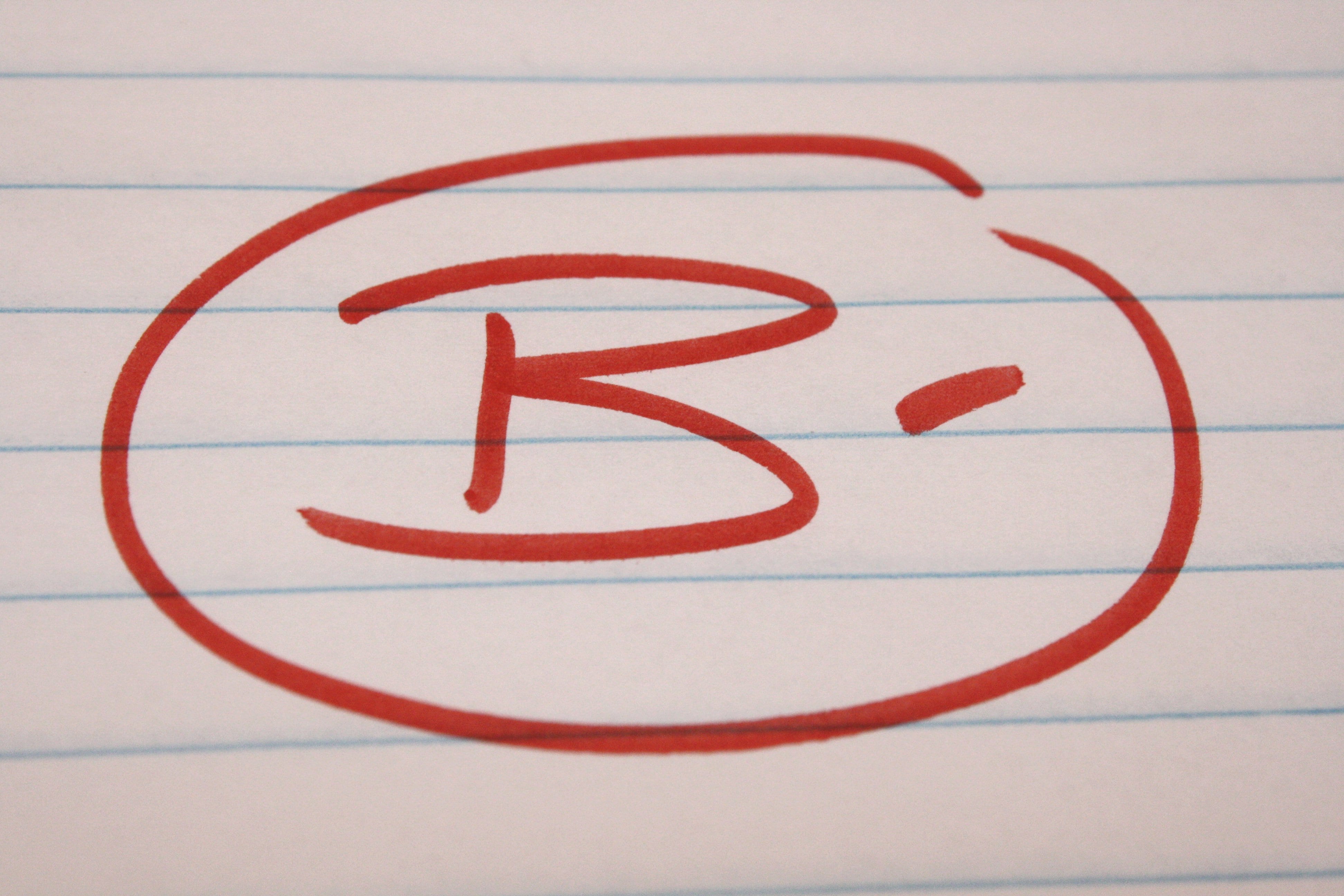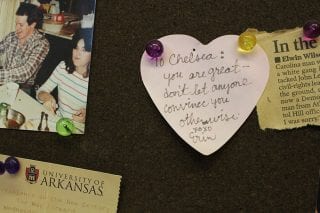by Chelsea Hodge
I’m originally from Berryville, Arkansas, a small town of about 5,000 people northeast of here. I grew up on a poultry farm – my dad raises chickens for Tyson. When I was 8 years old, I was the Carroll County Cow Chip Chucking Champion, which tells you everything you need to know about growing up in Berryville. If you don’t know what cow chips are, please ask your friendly neighborhood farmer. Somehow, I went from Berryville to the University of Arkansas Honors College, where I studied flute performance and German, of all things. My dad may have been horrendously bored in all of those classical concerts, but he came to all of them nonetheless.
I’m going to tell you all a story about when I took a natural science credit for my degree. I’m not going to tell you the name of these classes as I don’t want to scare you off. All of my friends told me to take Class A. Class A had a reputation for being interesting and fairly easy. But Class A was only offered on Tuesdays and Thursdays at 3 in the afternoon – certainly not what I wanted to do. Instead, I wanted to take Class B. Class B was offered in the mornings! Perfect. But all my friends warned me – Class B was much harder than you’d expect. Class B had been known to take down many a GPA! But I, being an all knowing and very smart honors student, said, “I think I’ll be fine.”
Well, that arrogance proved to be my downfall. As you might have guessed, I was not fine. I made a B in Class B. My first B, in college and in life. Honors students are good at many, many things. But they are not good at making their first B. Just like the many students who have sat in my office, I too thought my academic and professional career was effectively ended with that B in Class B.
Now it’s been a few years since I was an honors student and since I made that B. I graduated in 2012 with my honors degree. But as I’ve thought about what advice I should give you, a lot of it is bound up in that experience of making my very first B. And this advice is bolstered by the many honors students over the years I’ve seen have the same experience.
First, I am sorry to tell you, you are most likely going to make a B. And I imagine that many, many of you have never made a B in your life, or if you did it was in an AP class so it was weighted and didn’t really count. And if it’s not a B, it will be something else. Some other thing that you will fail at for the very first time, and though I’m laughing about it now, this will be very hard. Honors students are not good at making Bs.
And let me tell you something else honors students aren’t good at. They aren’t good at asking for help. You’ve spent your whole life being the “smart one.” And you are very smart, or you wouldn’t be in the Honors College – or thinking about honors. But college is hard. I know your teachers have told you that, but it’s true I’m afraid. For some of you, it will be hard right away. For others, it will take a while. Your classes will be harder than you expect. No, not every single one. But at some point you will find yourself in a class that is terribly hard.
College will be hard in other ways too, not just in the classroom. And honors students don’t want to ask for help. They are not good at admitting that perhaps something is harder than they expected. That they need extra tutoring or a visit to their professor. That the relationship they’re in is toxic, that their anxiety is reaching an unhealthy level, that their depression might be back. Friends, the single most important thing you can do to be successful in college is to ask for help. Go to your professors’ office hours. Go to CLASS+ for tutoring help. Go to CAPS, the counseling service. There are endless resources on this campus to help you in every way. If you don’t know what they are, ask someone. Your professor. Your RA. Your friend. Me.
 In the fall of my freshman year, I auditioned for a music ensemble that I was counting on. But I didn’t make it. And I was devastated. Embarrassed. I was studying music performance for goodness sake! I didn’t want to tell any of my new honors friends. I thought they’d laugh at me. But here’s what actually happened. I came back to my room that night and one of my friends, a girl I didn’t know too well, had left me a note on my door. It said, simply, “Chelsea, you are great. Don’t let anyone convince you otherwise.” That note is now in my office in Gearhart, if you ever want to see it.
In the fall of my freshman year, I auditioned for a music ensemble that I was counting on. But I didn’t make it. And I was devastated. Embarrassed. I was studying music performance for goodness sake! I didn’t want to tell any of my new honors friends. I thought they’d laugh at me. But here’s what actually happened. I came back to my room that night and one of my friends, a girl I didn’t know too well, had left me a note on my door. It said, simply, “Chelsea, you are great. Don’t let anyone convince you otherwise.” That note is now in my office in Gearhart, if you ever want to see it.
The Honors College is like that. It’s a place for very smart students who can support each other. A place where there is enough success and accomplishment to go around. Where the professors and the staff want nothing more than for you to show up in their office and to ask for their help. College is hard. But here’s the really, really good news: you may make a B – or two or more – but you will also be just fine. I made a B that year. I didn’t get into that ensemble that first semester. But I also studied abroad. I made many ensembles and won solo competitions. I did honors research I was passionate about. I published as an undergrad. I presented at a conference. I got funding to do all of those things! And I got into graduate school, Bs and all.
I can trace almost every accomplishment I had as an undergrad and that I’ve had since back to the Honors College, and specifically to people in the Honors College who helped me – honors staff, honors professors, and even my friends in the Honors College. Advisors who pushed me to do more. Professors who opened doors for me, wrote my recommendation letters, edited a kajillion rough drafts. People who convinced me to try for things I didn’t think I was capable of doing. People who believed in me.
College is hard and it’s also fantastic.
So, to summarize:
Don’t get too obsessed with being perfect.
And ask for help when you need it. After all, you are great. Don’t let anyone convince you otherwise.

